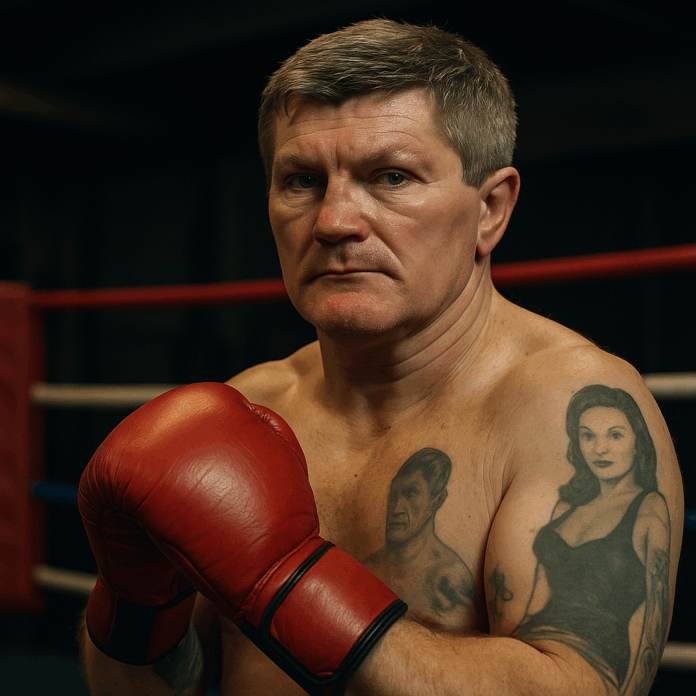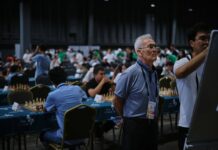The boxing world is in mourning after the sudden death of Ricky “The Hitman” Hatton at just 46 years old. Found at his home in Greater Manchester, his passing is not being treated as suspicious, but the loss is deeply felt across sports and beyond. Hatton was more than a fighter — he was a national hero, a working-class icon, and a man whose battles outside the ring were as fierce as those within it.
Overview
Few figures in modern British sport captured the hearts of fans like Ricky Hatton. Known for his relentless style, thunderous body shots, and loyal following, Hatton represented more than championships; he embodied a sense of grit, humour, and honesty that made him beloved far beyond boxing circles.
Born in Stockport and raised in Hyde, Hatton rose from humble beginnings to become a world champion, winning titles at both light-welterweight and welterweight. His thrilling fights against Kostya Tszyu, Floyd Mayweather Jr., and Manny Pacquiao ensured his name would forever be etched in boxing history. Yet behind the glory was a man who battled personal struggles with mental health, weight fluctuations, and the pressures of fame.
On 14 September 2025, the news of his passing at just 46 years of age shook the sporting world. Tributes from fellow fighters, celebrities, and countless fans poured in, painting a picture of a man who was loved for his humanity as much as for his victories in the ring.
Early Life and Manchester Roots
Ricky Hatton’s journey began in Greater Manchester, where he grew up in a tight-knit, working-class family. His upbringing shaped the humility and grounded nature that would later define him, both as a fighter and as a public figure. Unlike some athletes who became distant from their origins, Hatton embraced his roots, maintaining strong ties to his community and famously supporting Manchester City Football Club throughout his life.
His entry into boxing was marked by natural talent and extraordinary determination. From an early age, Hatton showed an appetite for competition and a resilience that would become his trademark. Those early gym sessions in Manchester would serve as the foundation of a career that would eventually catapult him onto the world stage.
Rise to Prominence and Career Highlights
The Tszyu Victory
Hatton’s breakthrough moment came in 2005, when he defeated the highly respected Kostya Tszyu in front of a raucous Manchester crowd. This fight was not just about winning a title; it symbolised the arrival of a new British star. Hatton’s relentless pressure, coupled with his fearless energy, broke down one of the sport’s most feared champions. The victory gave him the IBF light-welterweight belt and marked the start of his global recognition.
Taking on the World’s Best
Ricky Hatton was never one to avoid a challenge. His fights against Floyd Mayweather Jr. and Manny Pacquiao are remembered as defining moments of his career. Although he suffered defeats in both bouts, Hatton’s willingness to step into the ring with the very best cemented his reputation as a fearless competitor. Fans admired his courage to test himself against legends, even when the odds were stacked against him.
The People’s Champion
Beyond the belts and records, Hatton’s greatest achievement was the way he connected with fans. He brought thousands of supporters across the world, most memorably to Las Vegas, where his travelling army of fans created atmospheres that boxing had rarely seen before. He was a fighter who understood his role as an entertainer as well as an athlete, and he carried the weight of those expectations with pride.
Challenges Beyond the Ring
Mental Health Battles
Hatton’s career was not without its shadows. After retirement, he openly discussed his struggles with depression, alcoholism, and substance abuse. He admitted to experiencing suicidal thoughts and spoke candidly about the challenges of adapting to life after boxing. His honesty helped destigmatise conversations about mental health in sports, making him a symbol of vulnerability and courage.
Weight Struggles
Throughout his career, Hatton became known for his fluctuating weight between fights. While his intense training camps helped him cut down in time for bouts, these cycles took a toll on his health. Critics and fans often remarked on the contrast between the lean, sharp Hatton inside the ring and the heavier version seen outside it. Despite this, Hatton handled the scrutiny with humour and humility, never shying away from who he was.
Reinvention as a Trainer and Promoter
Following his fighting career, Hatton remained connected to boxing, working as both a trainer and promoter. He mentored young fighters, offering not only technical advice but also life lessons about the challenges of fame and the pressures of the sport. His gym in Manchester became a hub for aspiring boxers, reflecting his commitment to giving back to the community that shaped him.
Circumstances of His Death
Ricky Hatton was found at his home in Hyde, Greater Manchester, on 14 September 2025. Police confirmed that his death is not being treated as suspicious, offering some relief amidst the shock but little consolation for those grieving the loss. Just months earlier, Hatton had announced plans for a comeback fight scheduled for December in Dubai, a sign of his enduring passion for the sport he loved.
The suddenness of his passing has left fans, family, and the boxing world stunned, with many reflecting on the fragility of life and the legacy Hatton leaves behind.
Global Reactions and Tributes
The reaction to Hatton’s death has been immediate and widespread. Fellow boxers such as Amir Khan, Tyson Fury, and Manny Pacquiao expressed their sorrow, describing him as both a warrior in the ring and a kind, generous soul outside of it. Boxing organisations, commentators, and promoters highlighted his contributions to British boxing and his ability to inspire millions.
Manchester City Football Club, which Hatton supported passionately, paid tribute during their derby match, while fans across the world shared personal stories of encounters with “The Hitman.” For many, the tributes underscored a truth long recognised: Ricky Hatton was not just a sporting icon, but a man who embodied resilience, loyalty, and humour.
Legacy of Ricky Hatton
A Champion of the People
Hatton’s legacy cannot be measured by titles alone. He was the embodiment of a people’s champion — relatable, authentic, and approachable. He carried the hopes of his fans, who saw in him a reflection of their own grit and determination.
A Voice for Vulnerability
By speaking publicly about his mental health struggles, Hatton left behind more than an athletic legacy. He gave voice to the silent battles that many athletes and ordinary people face, encouraging others to seek help and confront stigma.
Inspiration for Future Generations
From young boxers in Manchester gyms to fighters across the world, Hatton’s influence will continue to inspire. His story is one of triumph, courage, and humanity — a reminder that champions are not defined solely by victories, but by their ability to endure, to rise, and to be honest about their struggles.
FAQ
- When did Ricky Hatton die?
He passed away on 14 September 2025 at his home in Hyde, Greater Manchester. - What was the cause of death?
Police have stated that his death is not being treated as suspicious. Specific details have not been made public. - How old was Ricky Hatton?
He was 46 years old at the time of his passing. - What were his career highlights?
Hatton won multiple world titles at light-welterweight and welterweight, most famously defeating Kostya Tszyu in 2005. He also fought Floyd Mayweather Jr. and Manny Pacquiao, cementing his place among boxing’s elite. - Was Hatton planning a comeback?
Yes, he had recently announced a fight scheduled for December 2025 in Dubai. - How is he being remembered?
Tributes have poured in from fellow fighters, fans, and the sporting world. He is remembered as a champion, a local hero, and a man whose honesty about his personal struggles made him beloved worldwide.
Conclusion
Ricky Hatton’s death at just 46 is a tragic loss to boxing and to all who admired him. His career was one of thrilling highs and painful lows, but his life story extends far beyond the ring. He was a fighter who never forgot his roots, a man who connected with ordinary people, and someone who showed the courage to speak openly about his vulnerabilities.
Even in defeat, Hatton was admired for his spirit. Even in struggle, he inspired others through his honesty. His planned return to the ring at the end of 2025 suggested a man who still held dreams, still felt the fire of competition. Those dreams have now been cut short, but the legacy remains. Ricky Hatton will be remembered not only as a champion but as a symbol of resilience, humanity, and heart.




























